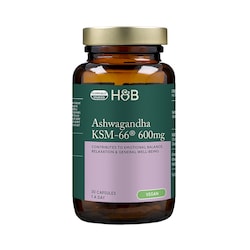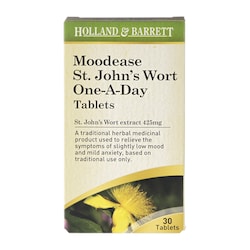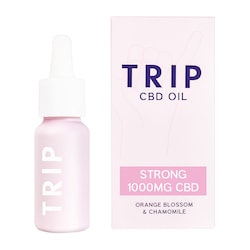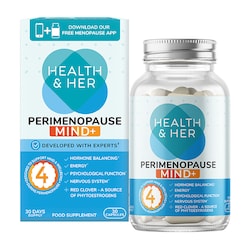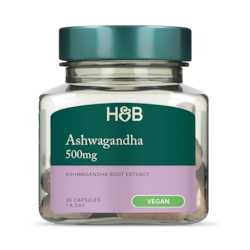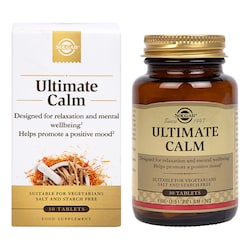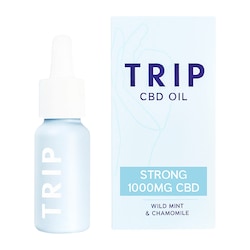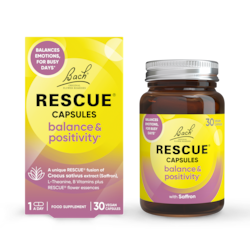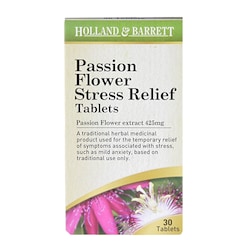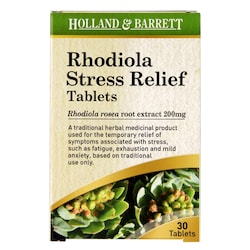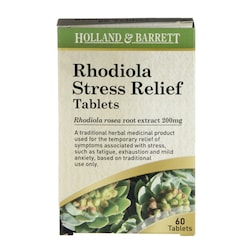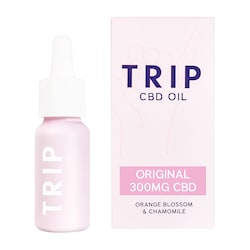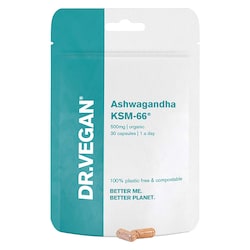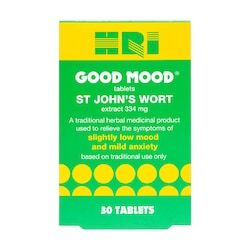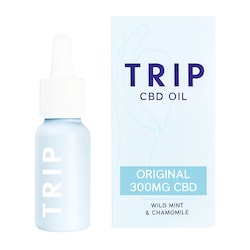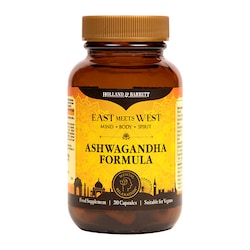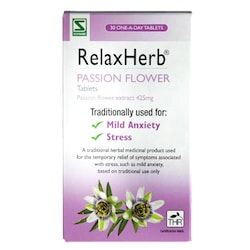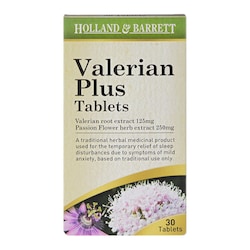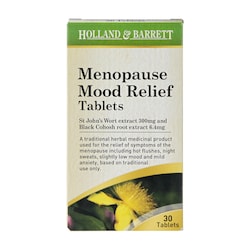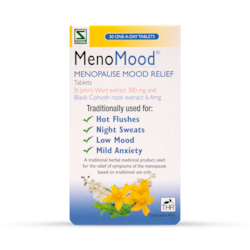20% off £30
A comprehensive guide to dealing with anxiety
.png)
Anxiety is our body’s natural response to stress, and most people will experience it occasionally.1
However, it can start becoming a problem when it begins to affect your day-to-day life. Read on for things you can do to help and reduce feelings of anxiety.
Causes of anxiety
Not one single thing causes anxiety; it can also affect people in different ways. They are not limited to, but can include2:
-
Past or childhood experiences
It’s common for things that may have happened in the past, either as a child, adolescent or an adult, to trigger anxiety at the time, as well as for many years afterwards. These experiences include physical or emotional abuse, neglect, being bullied or socially excluded or losing a parent.
-
Current life situations
Current life situations or problems can make people feel anxious. Some examples include having to work long hours, feeling lonely, money problems, being unemployed, feeling the pressure of studying or feeling exhausted.
-
New and existing physical or mental health problems
Issues like these cause people to feel anxious or make their anxiety worse. Serious, on-going health issues can cause anxiety. It’s also common for people to develop anxiety while dealing with other mental health problems, e.g. depression.
-
Drugs or medication
Anxiety can sometimes be a side effect of taking certain psychiatric or physical health medications or recreational drugs or alcohol.
What causes panic attacks?
Panic attacks are a symptom of panic disorders. According to the NHS, panic disorders involve feeling anxious, stressed and panicked at any time, for no apparent reason.
They usually happen on a regular basis too.
Panic is the most severe form of anxiety, and worrying about experiencing a new attack can make people feel more on edge and susceptible to having more panic attacks.3
Anxiety during lockdown
Anxiety can often arise from unexpected changes to your daily routine. For many, the disruptions of national lockdown have triggered feelings of uncertainty and doubt about the future, which can contribute to anxiety. If you have been worried about your mental health during lockdown, know that you’re not alone.
Even as we approach the end of lockdown in the UK, there are a number of factors that still may be contributing to your anxiety. With restrictions being lifted, the idea of adapting to a new lifestyle after months of being at home might seem tough.
If you are feeling anxious about going to work when lockdown ends, or find that you experience anxiety when going out in public, it may be helpful to understand more about where the feeling comes from and how to manage it.
Fortunately, there are many ways to cope with anxiety. With the right support you can learn to deal with it in a way that works best for you.
Symptoms of anxiety
Anxiety can cause changes in how you’re feeling physically or mentally and also be responsible for any behavioural changes.
It can be challenging to know when anxiety is contributing to how you’re feeling or acting, so keep an eye out for the below signs and symptoms:4
Physical symptoms of anxiety
- Faster breathing that is hard to control
- Increased or irregular heartbeat – this may feel more noticeable than normal
- Headaches and other aches throughout the body
- Sweating and hot flushes
- Nausea and loss of appetite
Mental symptoms of anxiety
- Feeling tense, nervous, and unable to relax
- Increased worry about the past and future but also the inability to stop worrying about everything (e.g. fear that people can see you’re anxious, people are angry at you, the possibility of a panic attack)
- Feeling emotional
- Ruminating on bad experiences
- Insomnia
Behavioural changes caused by anxiety
- Problems with your concentration that can affect your work
- Not taking care of yourself
- Inability to form or maintain relationships
- Feeling you can’t enjoy any leisure or downtime
- Worries about trying new things
The importance of acknowledging anxiety
Acknowledging anxiety can help you understand what triggers these feelings and learn which coping mechanisms work for you.
If you’re unsure why you’re experiencing anxiety, keeping a journal and seeking support can help identify the causes.5
10 ways of dealing with anxiety
Finding the right support and coping mechanisms can help in dealing with the problem. The following steps are those that might help in managing your anxiety:6
- Talking to someone you trust can help relieve you of any worries, and a listening ear from someone that cares about you can be of comfort. If you’re unable to speak to someone close, there are free helplines available.
- Managing your worries can seem impossible and at times, uncontrollable. Writing down your fears and storing them away can help take them from your mind for a time. If you’re worried about avoiding bad things happening, dedicate a specific time for these worries to reassure yourself you have thought about them once that day.
- Looking after yourself with a good sleep pattern, healthy diet, and regular exercise is known to have a positive effect on both physical and mental wellbeing.
- Breathing exercises - letting your breath flow deep into your belly, can help manage anxiety too. Breathe in through your nose and out through your mouth, counting to five. Repeat this for up to five minutes.7
- Keeping a diary lets you track how you feel when you get anxious, and you can pick up patterns on what triggers the feeling.
- Getting peer support from people who’ve been what you are going through, or are experiencing something similar, enables you to learn from others. It also acts as a valuable reminder you’re not the only one experiencing what you are experiencing. Some examples of peer support groups include Anxiety Care, Anxiety UK, No More Panic and Elefriends.
- Turning to complementary and alternative therapies can also be highly effective for some people. For instance, yoga, massage and herbal treatments are just some of the therapies people use to help them relax and sleep better. There are also alternative therapies, such as meditation and hypnotherapy, that can help people relax and let go of their worries. Anxiety supplements can also be helpful.
- Exercising on a regular basis can also have a positive effect on anxiety levels. Some people find activities, such as swimming, walking, running and yoga, help them to switch off and relax.8
- Tuning into wellbeing audio guides is also a useful way of learning and reminding yourself of some of the techniques to help with controlling anxiety, dealing with sleep problems, building your confidence, and more.
- Listening to relaxation and mental health apps can help if you’re looking to learn new techniques and coping strategies or reinforce some things you already know and have learnt. There are lots of different apps out there for you to choose from, ranging from Be Mindful and Beat Panic, to Sleepstation and Feeling Good: Positive Mindset.8
Anxiety and stress prevention
Stress and anxiety triggers
Everybody’s anxiety is caused by different things. If you know what your triggers are, then hopefully you can then minimise or remove them from your routine.
Some examples of general triggers include driving/travelling, phobias, caffeine and work-related stress.9
Avoid setting yourself unachievable targets if you’re suffering from anxiety, as trying to complete everything at once can add to your stress and worries.
Focus your time on the things you can change and ignore the things you have no control over. Resist using alcohol, drugs or cigarettes as coping mechanisms because they can contribute to poor mental health in the long run.9
Remember, you’re not alone. Most people experience stress, anxiety and fear throughout their lives.
When is anxiety and stress harmful?
It’s possible for people who experience on-going anxiety and stress for a while to develop health issues. Over time, the anxiety and stress can take its toll on their health, making them more susceptible to issues, such as heart disease, high blood pressure, diabetes, depression and panic disorders.10
Anxiety and stress can also become harmful when people develop thoughts about harming themselves or others. In these instances, they should seek medical help as soon as possible. The same applies to if their thoughts are getting in the way of being able to go about their day-to-day life.
Anxiety and stress can be treated and there are many resources, strategies and treatments available to enable people to understand and manage their anxiety and stress levels.
How do you calm down anxiety instantly?
If you’re driving, at work or in another public space and are feeling overly-anxious, then you may want to try and calm yourself down as soon as you possibly can.11
While it’s not always possible to immediately feel less anxious, there are plenty of self-help tactics you can follow to help make yourself feel calmer sooner. They include:
- Taking time out from what you are doing.
- Taking deep breaths.
- Counting to ten slowly.
- Focusing on positive thoughts.
- Accepting you cannot control everything.
- Thinking about what’s triggered your anxiety.
- Talking to somebody – a friend, a colleague, a family member or a therapist.
Summary
- Anxiety can be caused by many things, both past and present
- It can manifest different physical and mental symptoms in different people
- Understanding what triggers it for you is key to managing it
Breathing exercises to relieve anxiety
Breathing is such a natural process that most of the time, we do it without being aware. However, when in times of stress, breathing can become rapid and shallow, adding to feelings of anxiousness.
Taking time to learn about different types of breath and practising simple breathing exercises for anxiety can help you overcome these feelings.
The reciprocal relationship between breathing and anxiety
If you feel stressed or anxious, your body will typically instigate its fight-or-flight response. The brain doesn’t differentiate between physical or emotional threats but reacts in the same way, increasing the breathing and the heart rate to get blood to the muscles faster.12 This increased heart rate is to prepare you to tackle a physical threat or run away from it.
Nowadays, we don’t often experience these sorts of threats. But, when facing modern-day concerns, the brain will still produce this response.
This increase in breathing, or hyperventilation, causes an upset in the balance between our body’s oxygen and carbon dioxide levels. You may begin to feel lightheaded, as this unbalance reduces the blood supply to the brain, and your fingers may start to tingle. Severe hyperventilation can even result in a loss of consciousness.13
This reaction can increase levels of anxiety, exacerbating the situation. However, learning to control your breathing through simple breathing exercises can reduce stress and allow your oxygen and carbon dioxide levels to return to normal.
How to identify the different types of breathing
There are two ways of breathing. These are thoracic breathing (from the chest) and diaphragmatic breathing (from the abdominals).
-
Thoracic breathing
The rapid, shallow breathing experienced when feeling anxious comes from the chest. This way of breathing can add to feelings of anxiety, as the intakes of breath do not feel satisfying, and can make you feel as though you are suffocating.
-
Diaphragmatic breathing
The diaphragm is a muscle located at the base of the lungs. When you breathe diaphragmatically, this muscle contracts and moves downwards, providing more space for your lungs to expand. This downwards movement pushes on the stomach muscles and forces the abdominal wall out.14
The benefits of diaphragmatic breathing
Diaphragmatic breathing encourages the optimal exchange of oxygen and carbon dioxide. It slows the heart rate and can lower blood pressure. The knock-on effect is that we feel more relaxed, and anxiety levels drop.15
A simple breathing exercise to alleviate anxiety
Practice this simple breathing exercise to help lower levels of anxiety.16 You can be standing, sitting or lying when completing this exercise. However, focus on relaxing your body and ensure there is no tension through your shoulders.
- Inhale deeply through your nose and focus on this action inflating your abdomen. The rise in your chest should be minimal.
- Exhale slowly and steadily through your mouth, keeping your jaw muscles relaxed. It may help to purse your lips slightly and create a whooshing sound with your exhale.
- Repeat this breathing technique calmly and steadily for a few minutes.
If focusing on your breathing in this way is making you feel more anxious, stop. It can take practice to feel the benefits of this technique, so try to do a little at a time and build up slowly.
Some natural supplements can also be helpful alongside these breathing techniques to relax, reduce feelings of anxiety, and improve your sleeping patterns.
How to sleep better if you have anxiety
Getting enough shut-eye every night is vital for both our physical and mental health. When we sleep, our bodies perform a variety of functions, from repairing damaged cells to strengthening our immune systems.17
Sleep is also crucial for our brain as it’s when it processes all the information we’ve soaked up during the day and consolidates it into long term memories.18
If you don’t get enough sleep every night, you’ll likely feel lethargic the following day, much more irritable and probably have poorer concentration levels. These can all have a big impact on your everyday life and may make any anxiety you’re experiencing seem much worse.
How much sleep do we need?
Experts say that between seven and nine hours of sleep a night is a good figure to aim for.19
Nevertheless, this needs to be good quality sleep to properly nourish our minds and bodies. That means uninterrupted periods of dozing when our bodies are able to complete three to four REM sleep cycles.20
How to sleep with anxiety
If you find yourself regularly lying awake at night with a thousand thoughts running through your head, you might be after some tips on how to relax. Luckily, there are numerous things you can do to help promote sleep when you’re feeling anxious:
Develop a relaxing bedtime routine
It’s important that you wind down properly and avoid stressful situations in those few hours before you go to sleep.
Developing a bedtime routine is a great way to do this, whether that’s choosing to read every night before you sleep, doing some gentle yoga or having a warm bath to soothe your muscles.
Try to go to bed at the same time every night, too, to help maintain a good sleep routine.21
Make sure your room is cool and comfortable
Studies show that sleeping in a room that’s cooler is actually better for promoting sleep. That’s because our bodies naturally get cooler when we’re asleep as our heart rates drop and our blood circulation slows down.22
Before you go to bed, turn the heating off or down, close all the curtains properly and make sure your bed is as comfortable as possible.
Avoid technology for at least an hour before you go to bed
Technology can have negative effects on us for a number of reasons, particularly when we’re trying to go to bed.
That’s largely down to the fact that most electronic devices emit blue light which stimulates the brain, making it much more difficult to switch off for sleep.23
Avoid looking at your phone or tablet for at least an hour before bedtime if you can.
Try meditation or deep breathing exercises
If you’ve tried counting sheep and got nowhere, you might want to switch to a breathing exercise instead. You’ll find numerous apps online, like Calm, which guide you through meditation sequences and deep breathing routines.
Consider natural sleep aids
There are a handful of vitamins, herbal remedies and essential oils out there which may promote sleep.24 These include:
- Magnesium – magnesium is one of the minerals needed by the body to make melatonin, a hormone linked to sleep.
- Valerian – valerian has been used for hundreds of years as a natural sleep aid and is thought to be a beneficial treatment for things such as anxiety and stress. Based on traditional use only.
- Lavender – this fragrant flower has also long been a sleep aid, with some studies showing lavender’s strong scent can make you feel more relaxed after just 30 minutes.
Herbal remedies for anxiety
In addition to using natural remedies for anxiety, such as the examples we listed above, there are herbal remedies for anxiety available too. They include:25
-
Passionflower
Some clinical trials have been carried out that suggest passionflower can potentially help with anxiety.
It works by increasing the level of gamma-aminobutyric acid (GABA) in your brain, which may help people to relax and sleep better.26
-
Valerian
Studies of people who’ve taken valerian root for anxiety have shown that their anxiety and stress levels have decreased.
One study of 36 people with GAD found that 50mg of valerian root extract given three times a day for four weeks, significantly reduced one measure of anxiety compared to placebo.27
-
Chamomile
Chamomile is a well-known herbal remedy for anxiety and has been shown to be effective in aiding relaxation, and also helping with anxiety, depression and insomnia.28
-
Lavender
According to traditional folk medicine, the smell of lavender calms the nerves.
More recent research also suggests that there’s a compound in lavender that can lessen anxiety by stimulating the nose to pass signals to the brain.29
-
Lemon balm
Lemon balm is particularly useful for reducing nervousness and excitability.
It works by balancing your stress response system. It’s also known for helping create a healthy fight-or-flight response.
Essential oils for anxiety
If you experience anxiety, there are several essential oils that could help you, whether you experience it on a daily basis or just occasionally.
They not only smell incredible, but these aromas can have a hugely positive effect too when you add a few drops to your bath water, spray some on your pillow or apply them topically onto your skin.
What are essential oils?
Essential oils have been used for thousands of years by those who experience feelings of anxiety.30
They are extremely concentrated fragrant extracts. For instance, it takes 220Ibs of lavender flowers to make just 1Ib of lavender essential oil.31
How are essential oils used?
They’re used in all sorts of different ways.
They’re commonly used to help ease feelings of stress, boost mood, calm the mind and repel insects.
When it comes to using them to help achieve some of these benefits, there are a number of ways they can be used.
-
Inhaling essential oils
This typically involves applying a few drops to a cloth and gently breathing the fragrance in or putting some in a diffuser, so the scent can be circulated in the air.
It’s believed that inhaling essential oils stimulates the olfactory system - the part of the brain connected to smell.
-
Topically applying essential oils
Essential oils sometimes are applied directly to the skin to treat pain in a specific area, for instance, to ease tired muscles.
Certain oils are also applied directly to the body because of their soothing qualities, e.g. putting tea tree oil on acne or clove oil on fungal infections.32
Note – certain essential oils can aggravate skin and should be diluted before being applied. They include but are not limited to: bay, clove, cinnamon, lemongrass, citronella, oregano and thyme.33
-
Swallowing essential oils
Some essential oils can be used in cooking or even swallowed in small doses as medication, but this should be done with great caution.
While many are safe in small doses, others are poisonous and should never be ingested.34
How do essential oils help with anxiety?
It’s highly recommended that you try using essential oils if you are feeling anxious, and it’s all down to the power of scent.35
Simple smells, such as lavender, chamomile and rosewater can instantly help us feel calm, particularly if you’re gently breathing in or rubbing these essential oils on to your skin (be sure to dilute them first to avoid any irritation).
It’s essential you dilute them as they’re far too potent to be used neat.
To dilute essential oils, simply mix them with a carrier oil.
The amount you dilute them down by depends on their original strength.
As a general rule of thumb, the higher their percentage, the more likely you are to have a reaction, so it’s important to mix them correctly.
Always check the usage instruction before using essential oils.
What makes essentials oils calming?
Why do essential oils have the ability to help people feel less anxious?
It’s believed that they’re capable of sending chemical signals directly to the part of our brain that’s responsible for controlling our mood and our emotions.
Having said that, essential oils can’t take away feelings of anxiety altogether, but they can potentially take the edge off and help you relax.
For instance, just the thought of a dreamy hot soak in a lavender bath is relaxing, and has even more of a calming effect in reality too.36
Where do you apply essential oils for anxiety?
You can’t just apply them anywhere and everywhere, no matter how keen you might be for them to help with your anxiety or how good they smell.
There are certain ‘rules’ to applying essential oils.
For example, oils that are okay to put on your arms and legs, may not be safe to put inside your mouth, nose, eyes or private parts.
Lemongrass, peppermint, and cinnamon bark are prime examples.37
You should never apply essential oils to injured or inflamed skin, as it may make your skin react and worse overall.
Generally speaking, diluted essential oils can be safely applied to the crown of your head, behind the ears, to your neck and to your temples.38
What aroma helps with anxiety?
There are a few different aroma options to choose from, but the scents that are most commonly used to help with anxiety are:39
-
Lavender
Lavender is renowned for its soothing properties and is often associated with helping people relax and rewind.
It’s a scent that’s said to be a real mood-booster and help reduce feelings of nervousness.
It can be used at any time of day to help create a calming effect. It can be especially beneficial to use before bed to promote restful sleep.
This article shows you ‘How to Make Your Own Lavender Oil.’
-
Lemon
This essential oil is thought to reduce feelings of sluggishness, fatigue and sadness.
The scent of lemon oil is believed to help lift people’s mood, improve concentration, reduce fearful thinking and relieve feelings of stress.
-
Bergamot
Bergamot oil can help people feel refreshed and energised.
It is believed to help stabilise fearful thinking, lower anxious feelings, and promote deep relaxation.40
For more on this essential oil read, ‘What is bergamot?’
Top tip: Add 2 -5 drops of bergamot essential oil to products (ensuring it is correctly diluted), such as body wash, shampoo and facial scrubs.
-
Ylang-ylang
This fragrant oil is believed to be able to help relieve feelings of tension, sadness and worry.
Research has shown that ylang-ylang is good for improving mood and attitude.
20 of the best calming essential oils
-
Lavender oil
Lavender is the most popular of all essential oils.
This wonder scent can help ease anxiety and stress, so much so that researchers at the Royal Berkshire Hospital NHS Trust, Reading, used it on patients in the intensive care unit.
Several studies have shown that it can be hugely beneficial to patients who are sleep deprived.
Top tip: You can apply it to your skin with or without a carrier oil to form a lotion.41
-
Rose oil
Inhaling rose oil promotes calmness and reduces any feelings of tension that you may be feeling; it’s often recommended to those who are grieving or depressed.
-
Vetiver oil
Popular in India and Sri Lanka, vetiver essential oil is often referred to as the ‘oil of tranquillity.
It has a sweet, smoky scent that’s similar to sandalwood essential oil. It can alleviate feelings of emotional stress, anxiety and depression.
-
Ylang Ylang oil
This tropical scent is both calming and uplifting.
It is one of the best essential oils to use if you want to boost your emotional wellbeing.
-
Frankincense oil
Frankincense has a rich, warm aroma.
It can lift your mood and stimulate the senses, helping to bring your emotions back into check.
Adding to your bath should help relax both your mind and body.
-
Geranium oil
With a sweet scent similar to roses, geranium oil can help you replace negative thoughts with positive ones.
Many believe it can help restore hormone imbalance too.
Top tip: Geranium oil also has also been known to display antimicrobial properties.42
-
Jasmine oil
This essential oil has been used for centuries to help reduce feelings of anxiety.
Studies have shown that jasmine can help to stimulate your brain and improve your mood and energy levels. It may also calm your mood and senses.
Top tip: It’s an ideal oil for putting into a diffuser to evaporate and disperse its floral fragrance into the air.43
-
Chamomile oil
Try massaging chamomile oil (not directly) onto your skin or inhaling it when you’re feeling anxious.
It has a slightly herby aroma and you’ll no doubt think of chamomile tea as you breathe it in.
Top tip: Chamomile oil can also be used to care for skin concerns.
-
Bergamot orange
Bergamot oil is a popular aromatherapy oil for relieving anxiety due to its fresh and citrusy fragrance.
A study carried out in 2013 found that compared with inhaling water vapour, aromatherapy with bergamot orange essential oil reduced anxiety in people awaiting minor surgery.44
-
Clary sage
Clary sage is a medicinal herb that’s widely associated with relieving feelings of anxiety.
It’s believed to be able to lower blood pressure levels and respiratory rate; this was the finding of a small study of 34 women carried out in 2013.45
-
Lemon oil
Rich and citrusy, just like bergamot, lemon oil has been proven in animal studies (rats and mice) to reduce feelings of anxiety.46
Be sure to use lemon oil in moderation, as it is believed that overusing it can trigger stress.
Top tip: Citrus essential oils can increase sensitivity to sunlight, so make sure you protect your skin by wearing an SPF.
-
Neroli
Also known as orange blossom oil, neroli oil is sweet and citrusy, and studies have shown that it may have calming properties and potentially specifically help support restful sleep.47
Other essential oils for calming
You can also try out these other essential oils:48
- Basil
- Geranium
- Lime
- Sandalwood
- Sweet orange
- Grapefruit
- Patchouli
- Spearmint
What are the risks when using essential oils?
As with all skincare products, you should always use essential oils in line with the recommended guidance.
As we’ve already mentioned a bit further up, pure essential oils are highly concentrated solutions and can therefore potentially be toxic.49
Before using essential oils, especially if you’re planning on applying them to your skin, make sure you dilute them down in accordance with the manufacturer’s recommendations.
Using diluted essential oils can reduce the likelihood of them irritating your skin, eyes or lungs.
Undiluted essential oils should never be applied to people’s skin or eyes.
If you have particularly sensitive skin, you may potentially develop an allergic reaction or your skin may become irritated by essential oils.
If it becomes blotchy, starts to itch, hurts you or becomes red, it’s best to avoid using them.
The best and safest way to use essential oils, is to carry out a patch test on your skin first.
If your skin responds negatively, clean it with some soap and warm water and stop using the oil.
To conclude…
When it comes to using essential oils for relaxation and reducing anxiety, there are plenty of different options to choose from.
What’s more, it’s also possible to use them in many different ways too, depending on your own personal preference.
Take your time getting to know essential oils and the effect they can have on your mind and body, it’s an enlightening journey to be on that can deliver many self-care and health benefits.
For more insight on using essential oils to help with anxiety read, ‘Top 5 essential oils for stress relief.’
3 other measures that could help with anxiety
- Cognitive Behavioural Therapy (CBT) – works by encouraging people to think differently about their anxieties. By making your problems more manageable, CBT can help change negative thought patterns and improve the way you feel.50
- Counselling – as we briefly mentioned above, sharing your worries and talking them through with another person can potentially make them feel more manageable and reduce the stress associated with them. Some people choose to do this by speaking to a professional counsellor.
Counselling is a talking therapy that involves a trained therapist listening to you and helping you find ways to deal with emotional issues. It can help with:
- Mental health conditions, such as depression, anxiety or an eating disorder
- Difficult life events, such as a bereavement, a relationship breakdown or work-related stress
- Difficult emotions – for example, low self-esteem or anger
- As well as many other issues
- Identify your anxiety triggers – everybody’s anxiety is caused by different things. If you know what your triggers are, then hopefully you can then minimise or remove them from your routine. Some examples of general triggers include driving/travelling, phobias, caffeine and work-related stress.51
Summary
- Learning to control your breathing through simple breathing exercises can reduce stress
- Diaphragmatic breathing slows the heart rate and can lower blood pressure
- Good quality sleep is also key to managing anxiety
- There is a wide range of essential oils that can also reduce levels of anxiety
- Counselling may also help to address your concerns
How to support someone else with anxiety
If you’re keen to support someone close to you with anxiety, it’s understandable to feel a little out of your depth at first.
While identifying the cause of someone’s anxiety can go a long way in easing their nerves, there are also various other things you might be able to do to help.
How do you calm someone with anxiety?
If somebody you know is feeling particular anxious or experiencing a panic attack, there are certain things you can do to help them feel better.52
-
Ask how you can help them
They may already have some coping strategies they follow, e.g. breathing exercises or key phrases, they’d benefit from you doing with them.
-
Encourage them to seek help
Offer to arrange an appointment with their GP for them and to go with them or help them to find a therapist or simply explore the support options available to them.
-
Be as understanding as possible
Stress and anxiety can be overwhelming for people who experience it. Asking them how they are feeling and learning more about their situation, as well as doing your own wider research about it, will enable you to understand what they are going through.
Suggest they try a herbal remedy
There are a number of herbal remedies which have been used for centuries to help relax those who suffer from anxiety.
Valerian root has been used for hundreds of years as a herbal remedy for nervousness, anxiety and insomnia, based on traditional use only. It’s able to relax the muscles and slow down brain activity so you feel calmer.53
St John’s Wort is another millennia-old herbal remedy used to relieve symptoms of mild anxiety, based on traditional use only.
St John’s Wort is thought to work by reducing the time it takes for the brain to use up serotonin – the body’s ‘happy’ hormone.54
Don’t:
-
Put pressure on them to do something they don’t feel comfortable doing. This will most probably make them feel more anxious.
-
Assume you can’t help - even if they feel you can’t help them at the time, you may be able to help them at a later date. What’s more, knowing you’re there to support them is a huge help in itself.
-
Ask them to breathe into a paper bag - you should never encourage someone to breathe into a paper bag during a panic attack. This isn't recommended and it might not be safe.
Still worried?
If you’re worried about someone who has anxiety and think they might need professional medical help, try to gently encourage them to speak to their GP or a charity like Anxiety UK, who specialise in supporting those with anxiety.
A few final words about anxiety…
Anxiety impacts people in different ways and can be triggered by different things too, both past and present experiences. Fortunately, help is available to help people understand and manage their anxiety; the biggest hurdle is recognising it in the first place.
Now that you’ve read this article, we hope it’s answered any initial queries you may have had about anxiety and that you’ve found it a useful starting point for dealing with anxiety. For more practical advice for dealing with anxiety, read '8 ways to be kind to yourself'.

Dr Zoe Williams: A GP’s guide to staying fit and healthy
- The importance of lifestyle medicine
- Tips on how exercise can lift your mood
- Dr Zoe's ingredients for success
Last updated: 10 June 2022
- https://www.healthline.com/health/mental-health/how-to-cope-with-anxiety
- https://www.mind.org.uk/information-support/types-of-mental-health-problems/anxiety-and-panic-attacks/causes-of-anxiety/
- https://www.nhs.uk/conditions/panic-disorder/
- https://www.nhs.uk/conditions/stress-anxiety-depression/understanding-panic/
- https://www.mind.org.uk/information-support/types-of-mental-health-problems/anxiety-and-panic-attacks/self-care-for-anxiety/#collapse23a1c
- https://www.nhs.uk/conditions/stress-anxiety-depression/ways-relieve-stress/
- https://www.nhs.uk/apps-library/category/mental-health/
- https://www.nhs.uk/conditions/stress-anxiety-depression/understanding-panic/
- https://www.healthline.com/health/mental-health/how-to-cope-with-anxiety#long-term-strategies
- https://www.healthline.com/health/stress-and-anxiety#when-to-seek-help
- https://www.nhs.uk/conditions/stress-anxiety-depression/understanding-panic/
- https://www.guysandstthomas.nhs.uk/resources/patient-information/therapies/abdominal-breathing.pdf
- https://www.health.harvard.edu/lung-health-and-disease/learning-diaphragmatic-breathing
- https://www.verywellmind.com/abdominal-breathing-2584115
- https://www.health.harvard.edu/lung-health-and-disease/learning-diaphragmatic-breathing
- https://www.guysandstthomas.nhs.uk/resources/patient-information/therapies/abdominal-breathing.pdf
- https://www.healthline.com/nutrition/block-blue-light-to-sleep-better
- https://www.sleepfoundation.org/articles/why-do-we-need-sleep
- https://www.sleepfoundation.org/articles/why-do-we-need-sleep
- https://www.webmd.com/sleep-disorders/ss/slideshow-sleep-body-effects
- https://www.nhs.uk/live-well/sleep-and-tiredness/how-to-get-to-sleep/
- https://www.thesleepjudge.com/sleeping-cold-room-better-health/
- https://www.nhs.uk/live-well/sleep-and-tiredness/how-to-get-to-sleep/
- https://www.mayoclinic.org/diseases-conditions/generalized-anxiety-disorder/expert-answers/herbal-treatment-for-anxiety/faq-20057945
- https://www.healthline.com/health/food-nutrition/valerian-root#:~:text=Research%20on%20the%20use%20of,of%20anxiety%20compared%20to%20placebo.
- https://www.healthline.com/health/anxiety/calming-effects-of-passionflower#calmin
- https://www.healthline.com/health/food-nutrition/valerian-root#:~:text=Research%20on%20the%20use%20of,of%20anxiety%20compared%20to%20placebo. https://www.medicalnewstoday.com/articles/323422
- https://www.thecut.com/2017/05/chamomile-tea-benefits-reduce-anxiety.html
- https://www.medicalnewstoday.com/articles/323422
- www.calmer-you.com/five-essential-oils-for-anxiety/
- www.naturallivingideas.com/9-essential-oils-for-hormonal-imbalance-how-to-use-them/
- https://www.healthline.com/health/essential-oil-for-toenail-fungus
- https://www.verywellhealth.com/what-are-essential-oils-88807
- https://www.verywellhealth.com/what-are-essential-oils-88807
- https://www.webmd.com/skin-problems-and-treatments/ss/slideshow-essential-oils
- https://www.webmd.com/skin-problems-and-treatments/ss/slideshow-essential-oils
- https://www.webmd.com/skin-problems-and-treatments/ss/slideshow-essential-oils
- https://www.youngliving.com/blog/how-to-use-essential-oils/
- https://www.verywellmind.com/aromatherapy-for-panic-disorder-2584281
- https://www.healthline.com/health/bergamot-oil
- https://www.healthline.com/health/lavender-oil-for-skin
- https://www.verywellhealth.com/what-are-essential-oils-88807
- https://www.verywellhealth.com/the-benefits-of-jasmine-oil-88797
- https://www.medicalnewstoday.com/articles/324478#bergamot-orange
- https://www.medicalnewstoday.com/articles/324478#clary-sage
- https://www.medicalnewstoday.com/articles/324478#lemon
- https://www.medicalnewstoday.com/articles/324478#neroli
- https://www.medicalnewstoday.com/articles/324478#other-essential-oils
- https://www.medicalnewstoday.com/articles/324478#risks-and-considerations
- https://www.nhs.uk/conditions/cognitive-behavioural-therapy-cbt/how-it-works/
- https://www.anxietyuk.org.uk/tips-supporting-someone-anxiety/
- https://www.nhs.uk/apps-library/category/mental-health/
- https://www.nhs.uk/conditions/stress-anxiety-depression/understanding-panic/
- https://www.anxietyuk.org.uk/tips-supporting-someone-anxiety/


